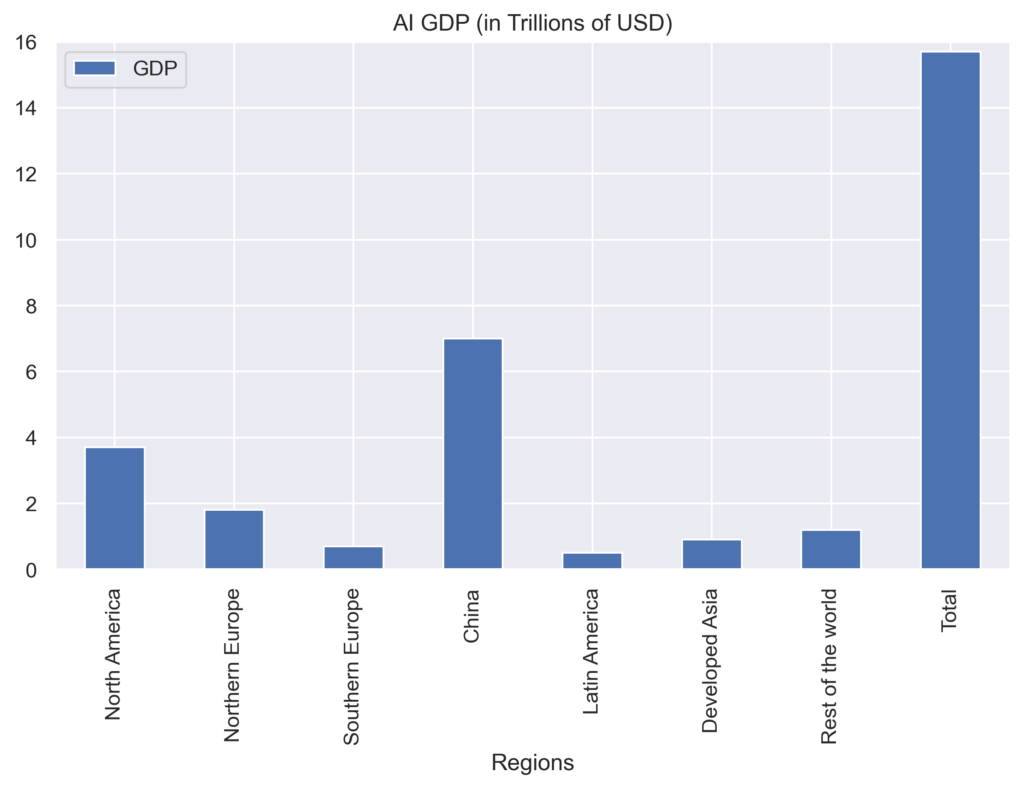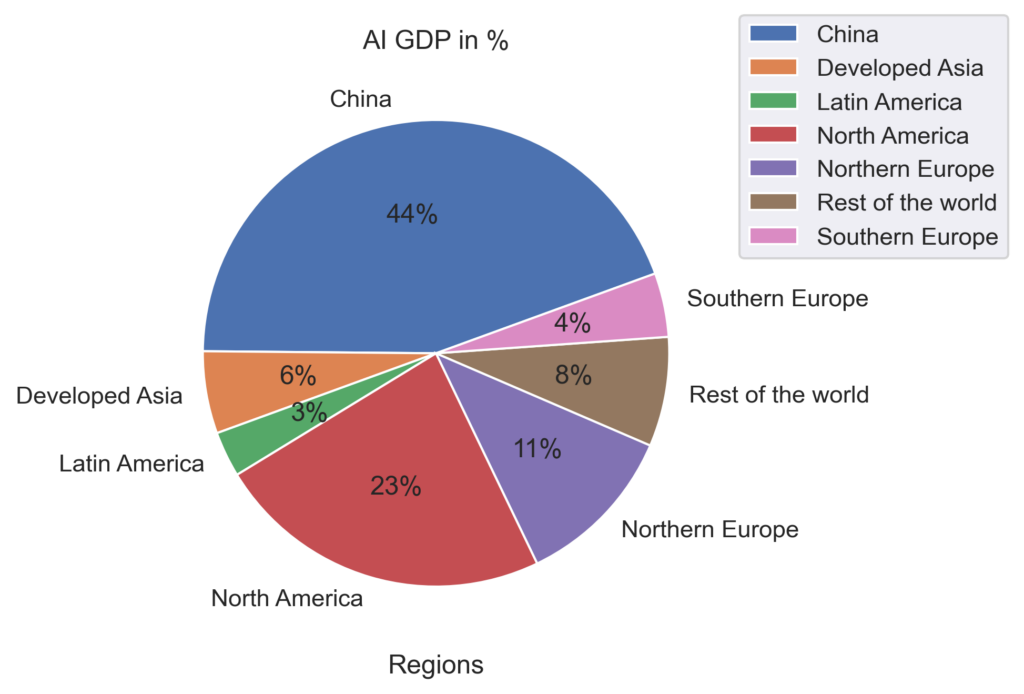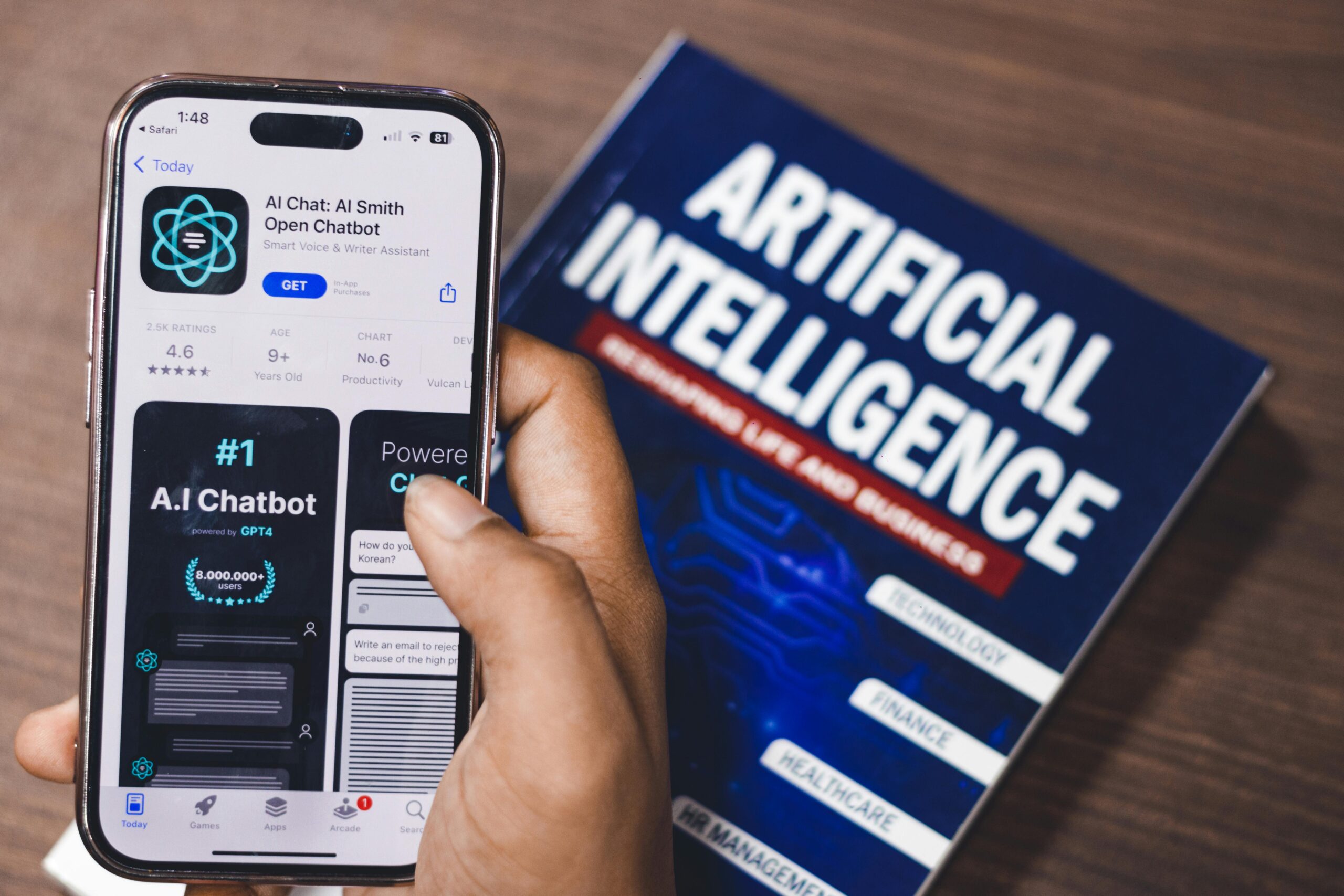Summary
Join us as we explore the opportunities and challenges in commercializing Artificial Intelligence in this era. Abdalla Ali Mahgoub, an experienced Data Science and Financial Technology professional, shares valuable insights on AI commercialization based on his extensive experience, drawing from reputable sources like PwC's Global AI study and Bloomberg's market analysis. In this article, we explore the AI commercialization landscape, highlighting the transformative power of AI applications and ML-driven systems. We also discuss regional variations in AI adoption and investment, with China leading in both application adoption and research in Data Science and AI. Additionally, we touch on ethical considerations associated with AI and Data Science, addressing issues like algorithmic bias, privacy concerns, accountability, and transparency. Research and development of ethical frameworks and guidelines are essential to ensure fairness, equity, and the protection of human rights in AI development and deployment.
Contributed by Abdalla Ali Mahgoub, Investment Ops/Data Analyst, Ghobash Trading and Investment Co Limited
Artificial Intelligence (AI) has revolutionized various sectors of the economy, becoming a driving force in commercialization efforts.  The advancements in Machine Learning Operations (MLOps) and AI-based applications have led to significant improvements in productivity, customer experience, risk management, and more. It is estimated that AI-driven projects will contribute approximately $15.7 trillion to the global economy by 2030, as shown in Figure 1.
The advancements in Machine Learning Operations (MLOps) and AI-based applications have led to significant improvements in productivity, customer experience, risk management, and more. It is estimated that AI-driven projects will contribute approximately $15.7 trillion to the global economy by 2030, as shown in Figure 1.
Global Adoption of AI-driven Applications:
China is at the forefront of adopting AI-driven applications and investing in in-house research and development in Data Science and AI. By 2030, they are projected to spend about 7 trillion dollars, which accounts for over 44% of the world’s global economy. Other regions, such as North America, Northern Europe, Southern Europe, Latin America, and developed Asia, are also expected to make significant investments, with projected spending of 3.7, 1.8, 0.7, 0.5, and 0.9 trillion dollars respectively. Together, these regions represent over 48% of the world’s global economy by 2030. In contrast, the rest of the world is lagging behind, contributing only 7.5% to the global economy, as depicted in Figures 2 and 3.


Machine Learning Algorithms and Data
All AI-driven projects and applications rely on machine learning algorithms, which are sets of mathematical instructions designed to produce expected outputs. These algorithms use historical data to generate outputs. The applications collect, store, process, and transmit data based on the algorithm to produce the desired output. The quality of the output is highly influenced by the initial data fed into the system.
The Importance of Influencing Choices in AI Applications
Companies with access to vast amounts of data can utilize well-trained AI algorithms to track, collect, extract, and process this data, effectively influencing specific decisions. This highlights the significance of influencing choices rather than merely making suggestions.
Ethics in AI and Data Science
Ethics in AI and Data Science focuses on the moral implications and societal impacts of artificial intelligence and data-driven technologies. It addresses issues such as algorithmic bias, privacy concerns, accountability, transparency, and the responsible use of AI in decision-making processes. Researchers are actively working on developing ethical frameworks and guidelines to ensure fairness, equity, and the protection of human rights in the development and deployment of AI and data science solutions.
In conclusion, adopting an ethical approach is crucial in every data science or AI-based project. Taking ethics seriously is of utmost importance in these projects, as highlighted in my scientific paper.
About the Author
Abdalla Ali Mahgoub holds a master’s degree in data science and financial Technology from Goldsmiths, The University of London. He currently works as an Investment Ops/Data Analyst at Ghobash Trading and Investment Co Limited, where he specializes in financial operations and financial data analysis. Abdalla has published extensively in the fields of finance, investment, healthcare, and retail, and has presented his work at numerous conferences and on social media channels. Additionally, he has contributed to the development of various startups, not only in the e-commerce sector but also in AI-based ventures.
IEEE Member: 98768904
ResearchGate: https://www.researchgate.net/profile/Abdalla-Mahgoub
LinkedIn: https://www.linkedin.com/in/abdallamahgoub/
List of references
PWC: https://www.pwc.com/gx/en/issues/data-and-analytics/publications/artificial-intelligence-study.html






